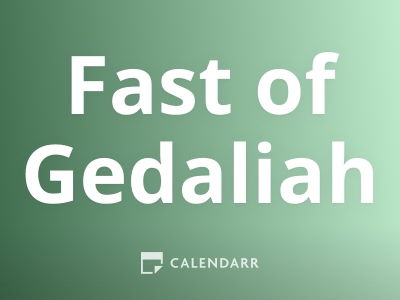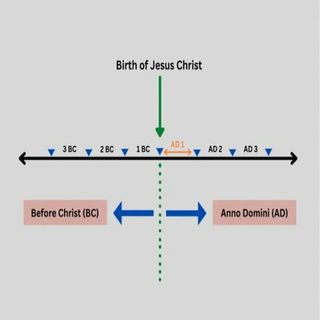- Calendar
- Calendar 2026
- September
- Fast of Gedaliah
Fast of Gedaliah
The Fast of Gedalia is a minor Jewish fast day, observed annually on the third day of the Hebrew month of Tishrei.
In 2025, the Fast of Gedalia will begin at dawn on September 25 and end at nightfall the same day.
This fast is a day of mourning, remembering the assassination of Gedaliah ben Ahikam, a tragic event that marked the end of Jewish autonomy in the land of Israel following the destruction of the First Temple.
While it is not a public holiday, the day holds religious significance, and many observant Jews refrain from eating and drinking during daylight hours.
Fast of Gedalia History
The Fast of Gedalia (Tzom Gedaliah in Hebrew) commemorates the assassination of Gedaliah ben Ahikam, the governor of Judah appointed by the Babylonians after the destruction of the First Temple in 586 BCE.
After the Babylonian conquest and exile of many Jews to Babylon, Gedaliah was installed as the leader of the small remaining Jewish population in Judah, with his base in the town of Mizpah.
As Gedaliah worked to make the community safe, he also pushed for Jewish refugees to return to their home country. However, his leadership was short-lived.
He was murdered by Ishmael ben Nethaniah, a member of the former royal family of Judah, who opposed Babylonian rule.
The assassination not only led to further bloodshed but also prompted the remaining Jews to flee to Egypt in fear of Babylonian retaliation.
This effectively ended Jewish presence and autonomy in the land for an extended period.
The fast was established to mourn this devastating loss and is mentioned in the Book of Zechariah among the four fasts that commemorate the destruction of the First Temple.
Traditions and Practices Observed
The Fast of Gedalia is a sunrise-to-nightfall fast, unlike major fasts such as Yom Kippur and Tisha B’Av, which begin at sundown the previous evening.
Adults in good health abstain from eating and drinking during these hours as an act of mourning and repentance.
Since the third of Tishrei can sometimes fall on Shabbat, a day when fasting is prohibited, the fast is postponed to the following day, the fourth of Tishrei. In 2024, it falls on a weekday, and fasting will take place as scheduled.
Prayers on this day include special additions to the Amidah (the central Jewish prayer) and Selichot (penitential prayers).
The Torah is read during the morning and afternoon services, with a focus on repentance and reflection.
While it is a day of solemn remembrance, regular work and daily activities are permitted, as it is considered a minor fast.
There are no specific dietary customs associated with the Fast of Gedalia beyond the fasting period, and the day does not include the extended mourning restrictions seen during Tisha B'Av. However, the fast serves as an important spiritual opportunity for introspection and reconnection with the lessons of Jewish history.
Significance of the Day
Though the Fast of Gedalia is lesser known than other fasts in the Jewish calendar, its historical weight is considerable.
The assassination of a Jewish leader striving for peace and stability marked the complete dissolution of Jewish rule in the land of Israel during the First Temple period.
It stands as a powerful reminder of the consequences of internal strife and the dangers of political discord.
Observing this fast is not only an act of mourning but also a call to unity, leadership with integrity, and the importance of peace among the Jewish people.
The Fast of Gedalia, like other commemorative fasts, invites reflection on past tragedies while inspiring hope and responsibility for the future.
It emphasizes that the lessons of history must be remembered, not only in sorrow, but as a guide for building stronger, more unified communities.
You might find these articles interesting if wish to know more about Jewish culture: Jewish Holidays: History, Customs and Celebration, and Jewish Calendar.

Other Celebrations
-
Feb 09 Mon
-
Mar 19 Thu
-
May 28 Thu
-
Jun 25 Thu
-
Feb 07 Sun
-
Feb 10 Wed











